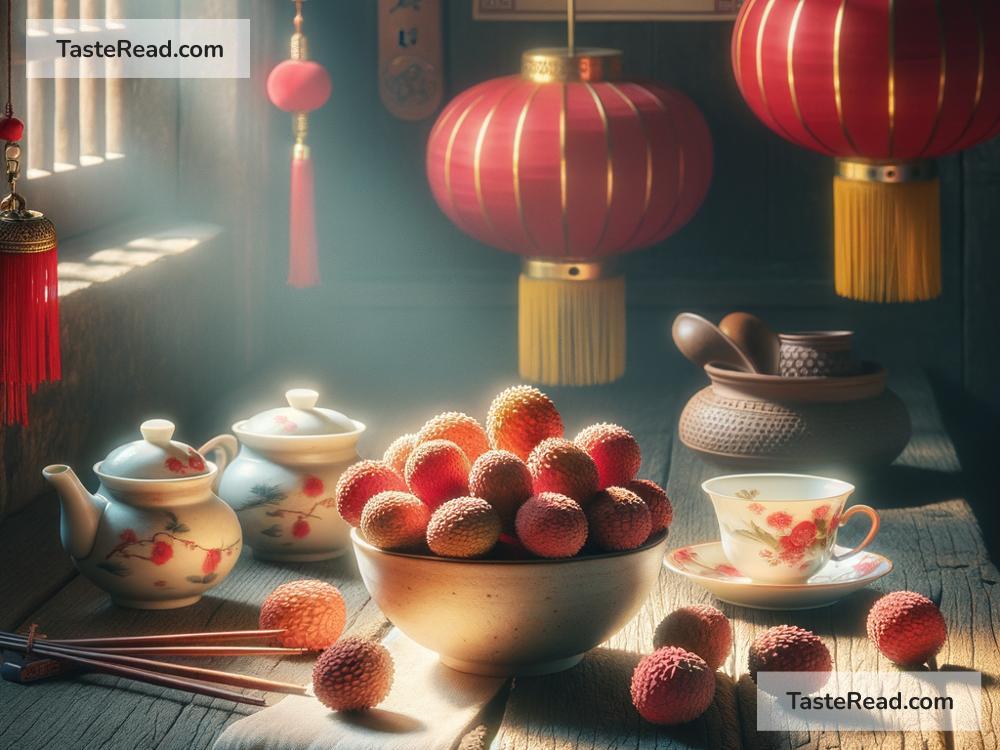The Fascinating Symbolism of Lychees in Chinese Culture
Lychees are small, red fruits with rough, leathery skin and juicy, pearly white flesh. Sweet and refreshing, lychees are loved for their delightful flavor and beauty. But in Chinese culture, they aren’t just delicious treats—they hold deep symbolic meanings, intertwined with history, tradition, and art. Let’s uncover why these tiny fruits carry such great cultural significance!
A Gift from Nature
The lychee tree, native to southern China, is known for its fragrant, sweet fruits. Lychees have been cultivated for over a thousand years and are considered an exotic treasure, especially in ancient times when they were rare and highly valued. The fruit ripens during summer, making it not just a favorite snack but also a symbol of abundance and vitality during the warmer months.
Lychees in Chinese History
Lychees have a rich history in Chinese culture. During the Tang Dynasty (618–907 AD), they were famously loved by Yang Guifei, a beloved concubine of Emperor Xuanzong. Historical records mention that the emperor would go to great lengths to have fresh lychees delivered to Yang Guifei, even ordering couriers to race horses to transport them from southern China to the palace in the north. This story portrays lychees as a luxury symbol, associated with royalty, romance, and indulgence.
Over time, the lychee became known as a fruit of desire and devotion due to its connection to Yang Guifei’s tale. It came to symbolize effort and affection—giving someone lychees was seen as a gesture of love and care.
The Color Red: A Lucky Hue
In Chinese culture, the color red holds incredible importance. It’s the color of joy, prosperity, and good fortune. Lychees, with their bright red skin, naturally fit into this symbolism. They are often associated with happiness and success, making them a popular fruit for festivals, weddings, and other joyful occasions.
During Lunar New Year celebrations, lychees are sometimes displayed or gifted because they represent the wish for a prosperous and joyful year. Their vibrant color and sweet taste perfectly align with the festive spirit of the holiday.
Symbol of Fertility and Family Prosperity
Lychees are also symbolic of fertility and family prosperity. The branches of the lychee tree are lush and full, and the fruits grow in clusters. In Chinese culture, this abundance of fruit is interpreted as a sign of fruitful family life. Lychees are often used to represent a thriving household and the hope for many generations to come.
Offering lychees at cultural ceremonies or sharing them with loved ones can carry the meaning of wishing for familial harmony and success in life.
A Sweet Symbol of Love
Lychees are famously sweet, and in Chinese culture, sweetness is often linked to love and romance. This symbolic sweetness, combined with their historical ties to Emperor Xuanzong’s affection for Yang Guifei, gives lychees the reputation of being a “fruit of love.”
In literature, poetry, and art, lychees are often used to convey feelings of tenderness and passion. For example, a poet might describe lychees to evoke the sweetness of a romantic relationship or the warmth of human connection.
Lychees in Poetry and Art
Throughout Chinese history, lychees have appeared in poetry, paintings, and folklore. They are often depicted for their beauty, with their striking red skin and translucent white flesh being admired as symbols of perfection and elegance.
Some poets have compared lychees to precious gems, emphasizing their rarity and desirability. Paintings of lychees are also popular, especially in traditional Chinese art. Artists often showcase the fruit as part of still-life arrangements, portraying its beauty and abundance.
Lychees in Modern Times
Today, lychees remain a cherished fruit in China. They are enjoyed fresh, dried, juiced, or incorporated into desserts and dishes. Beyond their delicious taste, many Chinese people still hold onto the symbolic meanings associated with lychees.
For example, lychee-themed decorations or foods are common at weddings, as they signify sweetness and a fruitful union. In business or gifting culture, lychees are sometimes shared to express wishes for prosperity and success.
With globalization, lychees have gained popularity around the world, but their cultural meaning in China remains unique and deeply rooted in tradition.
Lychees Are More Than Just a Fruit
As we’ve seen, lychees are not only tasty—they’re rich in symbolism. From representing love and devotion to symbolizing prosperity and good luck, these fruits carry centuries of cultural significance. Whether they’re used in literature, art, or festivals, lychees add a layer of meaning to Chinese traditions.
So, the next time you enjoy a lychee, take a moment to appreciate the stories and symbolism behind this little gem of a fruit. It’s a reminder of the beauty of Chinese culture, where even the simplest things—like a small red fruit—are full of meaning and history.


